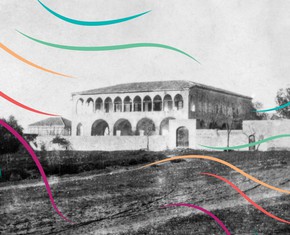The views expressed in our content reflect individual perspectives and do not represent the authoritative views of the Baha'i Faith.
The World doesn’t need Baha’u’llah as he brought nothing new, just recycled idealism and Sufi mysticism! —A Christian apologist
In the first installment of this three-part series on what’s truly new in the Baha’i Faith, we learned that the Baha’i teachings encompass two categories of “newness:”
- The updating of outmoded laws, in the same spirit of Christ’s changes to the laws of Moses;
- New teachings needed for the modern age.
We reviewed the following new Baha’i teachings in Part One: progressive revelation; abolition of the clergy; eradication of slavery; the prescription of monogamy; the equality of women with men; the call for universal compulsory education and the personal, independent investigation of reality.
In this part of our series, we’ll address several other new Baha’i teachings like these: the agreement of science and religion; the abolition of prejudice; the non-existence of evil and the dogma of original sin; and the obligation for everyone to engage in a useful trade or profession.
The essential harmony of science and religion.
A religion which does not conform with the postulates of science is merely superstition. – Abdu’l-Baha, Divine Philosophy, p. 82.
The Baha’i teachings assert the agreement of science with religion, of faith with reason. Both religion and science proceed from the same Source, which is God; therefore they cannot conflict with one another. As matter and energy are two expressions of the same reality, so too are religion and science. The Baha’i teachings argue that if religion and science appear to conflict it either arises from a miscalculation on the part of science, or a misinterpretation on the part of religion. In reality, Baha’is believe, religion and science are one.
Abolition of prejudices of all kinds.
It is racial, patriotic, religious and class prejudice, that has been the cause of the destruction of Humanity. – Abdu’l-Baha, Abdu’l-Baha in London, p. 28.
Racial and national prejudices constituted the major underlying causes of World Wars I and II, and most of the ongoing conflicts we see today. To judge before examining the facts is to pre-judge. Unfortunately we still live in a world where racial, sexual, economic, social, political, and religious prejudices thrive. The Baha’i teachings ask us all to work diligently to abolish all prejudice from our hearts and from the world.
The non-existence of evil.
Whatsoever God has created, He has created good. Evil consists merely in non-existence… Good has a positive existence; evil is merely its absence. – Abdu’l-Baha, Some Answered Questions, newly revised edition, p. 304.
Oh, a good deal of evil endures in the world—but Baha’is believe it has no supernatural champion, often called Satan or the Devil. Baha’i scriptures teach that evil, like darkness, describes the absence of good, in the same way that poverty represents the absence of wealth; weakness the absence of strength; ignorance the absence of knowledge, and so on. No longer can we pass on our all-too-human failings to a non-existent super-being by saying, “The Devil made me do it!” We must take responsibility for our own free-will choices.
Abolition of the dogma of original sin.
They say that Adam disobeyed the command of God and partook of the fruit of the forbidden tree, thereby committing a sin which was transmitted as a heritage to His posterity…
Could we conceive of the Divinity, Who is Justice itself, inflicting punishment upon the posterity of Adam for Adam’s own sin and disobedience? …There is no connection between the two. – Abdu’l-Baha, The Promulgation of Universal Peace, p. 449.
Baha’i scripture does not sanction the dogma of original sin. According to mainstream Christian theology a newborn baby inherits the sin of Adam’s fall, and will go to hell in the next life if not first baptized or converted. This doctrine was even extended to millions of so-called pagans who never heard of Jesus and died in ignorance of their supposed “sin.” Instead, Baha’is believe that all humans are created noble, as spiritual beings, with an eternal life determined by our deeds and actions in this world.
Our obligation to engage in trades or professions that serve humanity.
Man must work with his fellows. Everyone should have some trade, or art or profession, be he rich or poor, and with this he must serve humanity. This service is acceptable as the highest form of worship. – Abdu’l-Baha, Abdu’l-Baha in London, p. 93.
For a very long time, humanity has had an idle class who live off the proceeds from the labor of others. Baha’u’llah has abolished this practice. Baha’u’llah calls every soul to work in the spirit of service to humanity. When one consciously works this way, Baha’u’llah said, such work is accounted as worship.
In Part Three on what is ‘new’ in the Baha’i Faith, we will explore the divine polity promised in the Old and New Testaments—“Thy kingdom come, Thy will be done, on Earth as it is in Heaven”—and ways to properly understand the Biblical interpretation of that concept from a Baha’i perspective.
You May Also Like
Comments

















Your articles helps break our basic tennants out into easily ...understood and easily digested segments that anyone can grasp quickly. This truly does make a difference. Thank you. :)